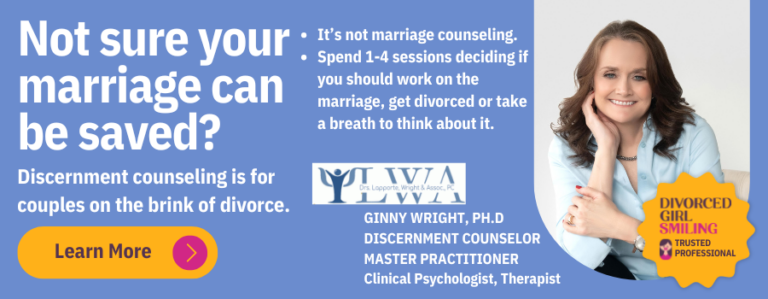Marriages don’t collapse overnight. They erode through patterns—small choices, unspoken resentments, and unaddressed wounds. When a relationship falters, the instinct to point fingers is almost automatic. But what if the path to healing, or even a healthier separation, begins with owning your part without drowning in blame? Having healthy boundaries, especially when facing the pain of a divorce, means doing just that: accept responsibility for your contributions to the problems without taking on toxic guilt; the shame and blame of a relationship that ended. The distinction can feel so small, it’s no wonder we often present as a roller coaster: one moment filled with remorse and the next with rage.
Toxic Guilt and blame keeps us looking backward; taking responsibility helps us move forward
If you are someone who loves self-help books, you almost certainly have at least one book on your shelf by Nathaniel Branden. Perhaps his most famous book was Six Pillars of Self-Esteem which popularized ideas he had been writing about for over 25 years before its publication. Specifically, he believed that the foundation of self-esteem lies in action-based practices, not feelings. Personally, my favorite book by Branden expanded on those ideas; I often recommended Taking Responsibility: Self-Reliance and the Accountable Life when it came out in the 1990s. Unfortunately, the title was enough to turn off many of my clients who were certain that they were already taking on too much responsibility for difficulties in their relationships.
But anyone who stopped at the title and failed to read the book missed out on one of the most transformative insights from Branden’s work: the difference between toxic guilt and healthy accountability. Toxic guilt is a paralyzing force, rooted in shame and self-condemnation. It traps individuals in a cycle of “I’m a terrible spouse” or “It’s all my fault,” leading to defensiveness, withdrawal, or despair. Healthy accountability, by contrast, is empowering and action oriented. It involves acknowledging specific actions—like “I’ve been dismissive during arguments”—and committing to change without defining yourself as a failure.
Blame (and the associated shame) looks backward; accountability propels us forward.
Why The Distinction Matters So Much
Toxic guilt clouds judgment and stifles communication, often escalating conflicts or preventing honest self-reflection. Healthy accountability fosters self-compassion and agency, allowing individuals to address their mistakes constructively. For example, recognizing “I didn’t listen when my partner needed me” opens the door to better listening, whereas guilt might lead to avoidance or over-apologizing without change.
The distinction between blame and responsibility is equally important when looking outward as you judge your spouse or ex-spouse. You can ask your partner to be accountable without imposing the weight of blame. Healthy accountability invites mutual ownership, where both partners can say, “Here’s what I’ve contributed, and here’s how I’ll grow,” creating space for dialogue or a respectful separation.
Breaking Patterns Through Accountability
Marital patterns—like chronic arguments or emotional distance—almost always stem from both partners’ actions. Taking responsibility for your half of the dynamic can shift the entire relationship. For example, if one spouse withdraws, the other’s pursuit or criticism may escalate the tension. Owning your role (e.g., “I shut down when I’m upset”) can de-escalate and invite mutual accountability.
This is the foundational assumption of discernment counseling for couples on the brink of divorce. These couples are at a crossroads, where one person hopes to save the marriage and the other is seriously considering divorce. For these couples, marital therapy is doomed to fail because it requires both partners to be all in for change, which is not the case when one person has a foot out the door. As we help couples gain clarity about the next steps for their relationship, we know that a willingness to work toward reconciliation requires that both spouses recognize the critical importance of breaking patterns. We also know that only happens when spouses are accountable for their own contributions to those patterns. It requires moving away from blame, landing solidly on the doorstep of accountability.
Shifting the mindset from blame to accountability
How do individuals in troubled marriages start to make the mental shift away from the toxic guilt and blame mindset and toward the accountability mindset? Here are some starting points:
- Reflect Without Judgment: Use self-awareness exercises, like journaling specific actions you’ve taken in conflicts, avoiding broad self-blame. As you reflect, you are not making a judgment of yourself or others; you are noting the actions or behaviors that occurred in the conflict.
- Reject Toxic Guilt: When guilt arises, ask, “Is this helping me grow, or just making me feel worse?” Focus on what you can change.
- When you see you own role, communicate your willingness to be accountable: Share insights with your partner non-defensively, e.g., “I realize I’ve been dismissive; I see how that has pushed you away, and I want to work on listening.” This strategy is useful even after couples have decided to part ways.
- If you are part of a mixed agenda couple (one spouse looking to end the relationship, the other looking to preserve it), consider Discernment Counseling. The approach cuts through the surface level blame game and focuses instead on recognizing problematic patterns and helping each person own their part. Even if the end result is divorce, the process helps each partner move forward with the power and personal agency that comes with accountability.
A note to professionals
As professionals who work with individuals in marital distress (as therapists, coaches, attorneys, etc.), we carry the responsibility of lifting our clients away from blame (of self and others) and toward healthy accountability. It is all too easy to unknowingly support a blame mindset as we support clients’ endeavor to “stand up against” a hurtful spouse or difficult marriage. Yes, we celebrate our client’s growth toward self-care! But we need to do it in a way that does not resort to blame. Here are some points to consider:
- Encourage Self-Reflection: Therapists should challenge themselves to evaluate their client’s situation through a systemic lens, and help those clients identify their contributions to marital issues without feeling attacked. Divorce professionals should be careful not to quickly assume that their client is a victim, and remember that personal agency is promoted through accountability, not blame.
- Teach the Guilt-Accountability Divide: Guide clients away from toxic guilt toward actionable change, whether they reconcile or divorce.
- Facilitate Honest Dialogue: Create a safe space for both individuals and couples to discuss their roles in patterns, using the guilt-accountability distinction to reduce conflict and foster clarity.
Conclusion
Accountability isn’t about absorbing blame—it’s about taking control of your growth. Whether you’re navigating a troubled marriage or guiding others through divorce, distinguishing between toxic guilt and healthy accountability is pivotal for transforming pain into possibility.
Like this article? Check out “Can My Marriage Be Saved? It Depends.”





















